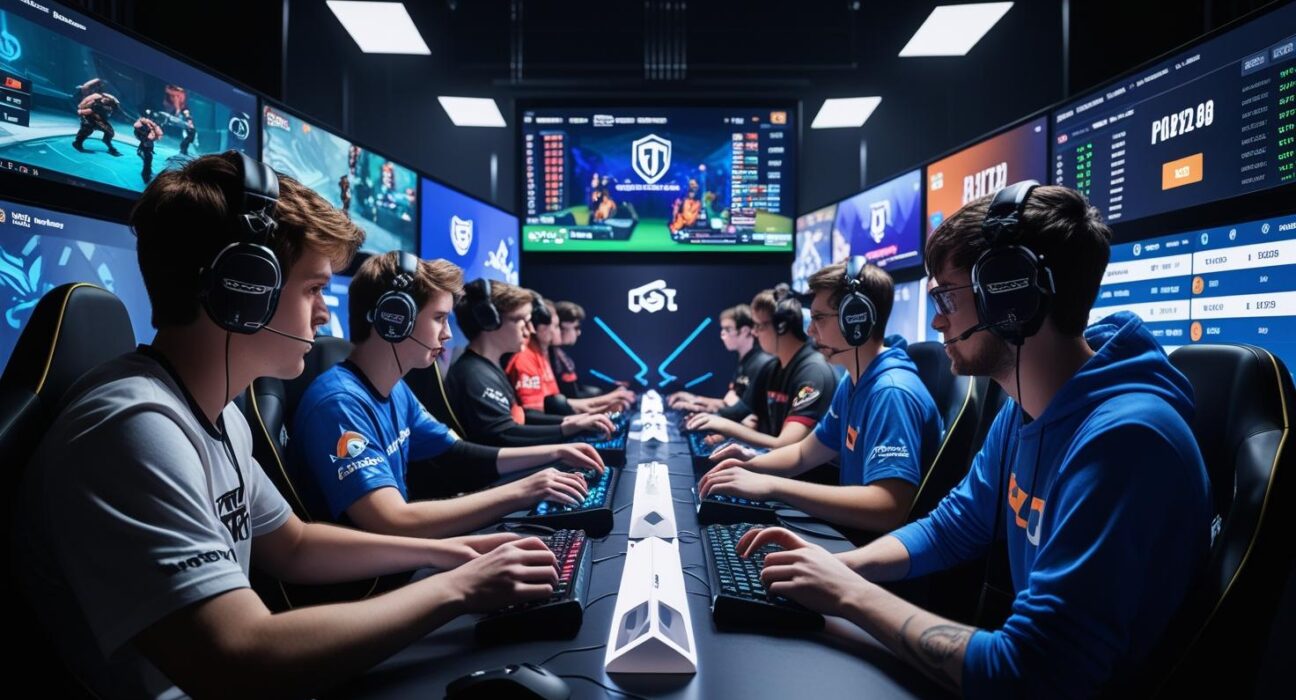As esports continues its meteoric rise, regulators, sportsbooks, and betting operators are turning their attention to one crucial question: Which titles are best suited for licensed, regulated betting environments?
Not all games are created equal when it comes to legal clarity, integrity protocols, or audience stability. In fact, some games—while wildly popular—are near impossible to offer in regulated jurisdictions due to publisher restrictions or match-fixing concerns.
Here’s a deep dive into the top esports titles that have gained legitimacy and traction in regulated betting markets, why they’re favored, and what operators must consider before going all-in.
What Makes an Esports Title “Bettable”?
Before diving into specific titles, it’s essential to understand what makes an esports game viable for betting in regulated markets:
- Consistency in rules and structure (leagues, tournaments)
- Large, predictable event calendar
- Match integrity safeguards and anti-fraud protocols
- Publisher cooperation or at least non-interference
- Robust, real-time data feeds
- Clear skill-based mechanics (to reduce legal ambiguity)
These criteria separate casual gaming spectacles from titles sportsbooks can build long-term betting products around.
The Top Regulated Betting Titles
1. Counter-Strike 2 (CS2)
- Why It’s Bettable: One of the most established titles in esports betting, CS2 (formerly CS:GO) features a transparent tournament ecosystem, high-level data availability, and a global fanbase.
- Publisher Attitude: Valve has historically taken a neutral stance on betting.
- Risk Factor: Some concerns remain around match-fixing at tier-2 events, but top-tier games (BLAST, ESL) are highly secure.
2. League of Legends (LoL)
- Why It’s Bettable: Riot Games’ structured seasonal format (LCS, LEC, LCK, etc.) and the global World Championship make LoL one of the most professionalized ecosystems in esports.
- Publisher Attitude: Riot is more restrictive than Valve but has not blocked betting. Certain regions are more lenient.
- Risk Factor: Low at top-tier events. Riot’s enforcement and team ownership rules help curb integrity issues.
3. Dota 2
- Why It’s Bettable: Like CS2, Dota 2 benefits from Valve’s laissez-faire approach and strong major circuit (DPC) structure.
- Publisher Attitude: Largely permissive.
- Risk Factor: Similar to CS2. Higher-tier events are safe, while minor leagues may carry higher integrity risks.
4. Valorant
- Why It’s Bettable: Riot’s newest hit title is quickly becoming a staple. Structured leagues, a global championship series, and growing fanbase make it betting-ready.
- Publisher Attitude: Still conservative on betting integrations, but the infrastructure is strong.
- Risk Factor: Lower than expected due to Riot’s experience with LoL.
5. Overwatch 2
- Why It’s Bettable: Blizzard’s Overwatch League once offered a traditional sports-like league format with franchises and seasonal play.
- Publisher Attitude: Mixed. Blizzard has sent mixed signals about betting.
- Risk Factor: Viewership decline post-OWL may limit appeal.
6. Call of Duty (CoD)
- Why It’s Bettable: Call of Duty League (CDL) operates on a franchise model and has a dedicated viewer base, particularly in North America.
- Publisher Attitude: Activision is cautious but hasn’t outright banned betting.
- Risk Factor: Regional popularity is a limiting factor.
Emerging Titles with Regulatory Potential
7. Rainbow Six Siege
- Why It’s Gaining Steam: Ubisoft’s tactical shooter is gaining traction due to its mature audience and team-based gameplay.
- Challenges: Still growing international visibility and requires better infrastructure.
8. Rocket League
- Why It’s Unique: The most family-friendly esport, it merges racing and sports. Strongly appealing for casual bettors.
- Challenges: Publisher Psyonix has been hesitant about integrations.
9. Mobile Legends: Bang Bang (MLBB)
- Why It’s Rising: A mobile-first esport with massive Southeast Asian viewership.
- Challenges: Regional constraints; betting-ready in Asia but limited appeal elsewhere.
10. PUBG (PC & Mobile)
- Why It’s Popular: Battle royale format with large tournaments.
- Challenges: Format volatility and anti-cheat limitations.
Why Publisher Cooperation Matters
Esports is different from traditional sports in one key way: Publishers own the game and control its IP. If Riot or Valve decides to crack down on betting integrations, platforms must comply or face legal and commercial risks.
Thus, publishers’ stance on betting—whether passive, supportive, or restrictive—directly affects which titles become viable in regulated markets.
Some publishers are even exploring direct licensing deals with sportsbooks, creating new models of revenue-sharing and data monetization.
Integrity is Non-Negotiable
Match-fixing, ghosting, and cheating scandals have rocked multiple esports titles. To operate in regulated markets, titles must:
- Partner with integrity bodies (e.g., ESIC, Sportradar)
- Mandate player education programs
- Implement strict bans and sanctions
- Offer real-time data APIs to licensed bookmakers
Top-tier events are increasingly as clean as traditional sports leagues, but vigilance is required.
Legal Frameworks Around the Globe
- United States: State-level regulation. Fantasy esports is allowed in many states. Betting legality varies (NJ, NV more open).
- UK: Gambling Commission has begun licensing esports betting operators under strict data protocols.
- Europe (Malta, Sweden, etc.): Highly supportive of regulated esports betting with clear licensing.
- Asia: Mixed. Markets like the Philippines and India are more permissive. China and Korea are more restrictive.
- LatAm & Africa: Emerging regulatory clarity, but esports betting is gaining steam.
Conclusion: Betting on the Right Titles
In regulated markets, not every esports title is a safe bet.
Operators, affiliates, and even punters must understand the underlying structure, publisher stance, and integrity risks of each game. As esports becomes a key vertical in sportsbooks, we’ll see more partnerships, better regulation, and smarter data feeds.
The titles listed above aren’t just popular—they’re foundational to the future of legal, scalable, and sustainable esports betting.
At JackPotDiary, we’ll continue monitoring which games rise—and which get benched—in the evolving world of esports regulation.
Stay tuned. The meta is always shifting.











